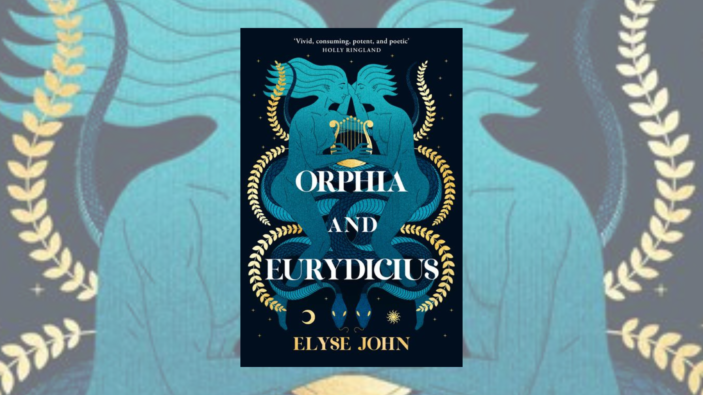
Orphia and Eurydicius by Elyse John is a beautiful and poetic new retelling of the original Greek myth, Orpheus and Eurydice.
In the original myth, Orpheus is known to be a dominating male lead, with Eurydice as his submissive lover. In John’s retelling, the gender roles of the two characters are switched, making Orphia a female dominating lead, and the daughter of the Greek God, Apollo, and the Chief Muse, Calliope. Meanwhile, in this telling Eurydicius is a submissive male lover to Orphia. A further change, is that in the original myth, Eurydice’s parents are King Amphiaraus and Eriphyl, but in this retelling, his parents are humble farmers.
Throughout the book, Orphia goes on many adventures spreading her poetry across the land and becoming famous while also proving to men that women are not submissive objects:
“I wanted to show the world that women were not merely objects to be desired. I wanted men in every corner of the land to learn that we desired, too.” (154)
John’s novel is both poetic and lyrical in prose and composition, and clearly displays her poetic background. While reading, I heavily indulged in annotating different pages as I quickly fell in love with the prose. If, like me, you are a lover of words and quotes, John’s descriptions of events, places, people, dreams, and emotions, will be sure to satisfy your hunger. Here are some of my favourite examples:
“I have turned the stone’s loss into an artwork. That is what women are expected to do: take our wounds and make them into something beautiful.” (173)
“If there were a thousand stars in the sky and you floated amongst them, I would see only you. The black infinity of night, and a single bright point.” (199)
John’s word choices often felt intentional, as if every word was carefully thought about within each constructed sentence. However, her frequent use of the word ‘queer’, which is used eleven times across the novel, left me with a sour taste, and a little confused due to the novel’s dominant theme of femininity.
The ‘traditional’ definition of ‘queer’ refers to something that is odd, strange, peculiar, or something that isn’t deemed as ‘normal.’ The contemporary definition has become a boarder term, and is often used when referring to the LGBTQ(ueer)IA+ community. So, reading a feminist re-telling and seeing this word used so many times throughout, puzzled me, as I often interpreted John’s use of the word to align with the original harmful definition.
For example, “Yet I had the queer feeling that she already knew.” (68). Though there are also examples that do exclude that harmful definition: “I am glad that we share the same queer spirit.” (209) In the conversation prior to that quote, Orphia and Eurydicius had spoken about their past ‘queer’ sexual experiences. Which in that instance is more in keeping with the word’s more modern meaning. I felt that often the word ‘queer’ could easily have been substituted for a more appropriate word, or used so its meaning was more consistent.
In John’s process of swapping the genders of the two main characters, she has enabled herself to explore the idea of femininity in both ancient mythological and modern contexts. This could have been a risky move. But, her execution gave full respect to the original myth. Though, John did change some of the chronology, whilst also adding from her own imagination in between major plot points, which further enhanced her retelling. As a Greek mythology enthusiast, the change of chronology didn’t bother me, or affect my enjoyment of the book or the overall myth. In fact, I view John’s work as being her own version of the myth, and I may just appreciate it more than the original due to her modern feminist approach.
If you’re a lover of the lyrical writing of Madeline Miller or grew up reading Rick Riordan and are familiar with his world building, then you will find Orphia and Eurydicius to be an enjoyable and beautifully poetic read.
Elyse John’s Orphia and Eurydicius is available now from HarperCollins Australia. Grab yourself a copy from Booktopia HERE.
